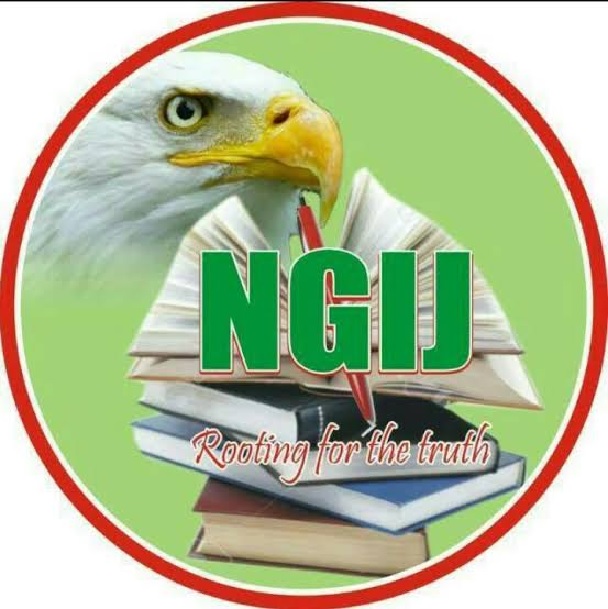Article
The Press Cannot Be The Watchdog Of Society Without Vibrant Investigative Journalism
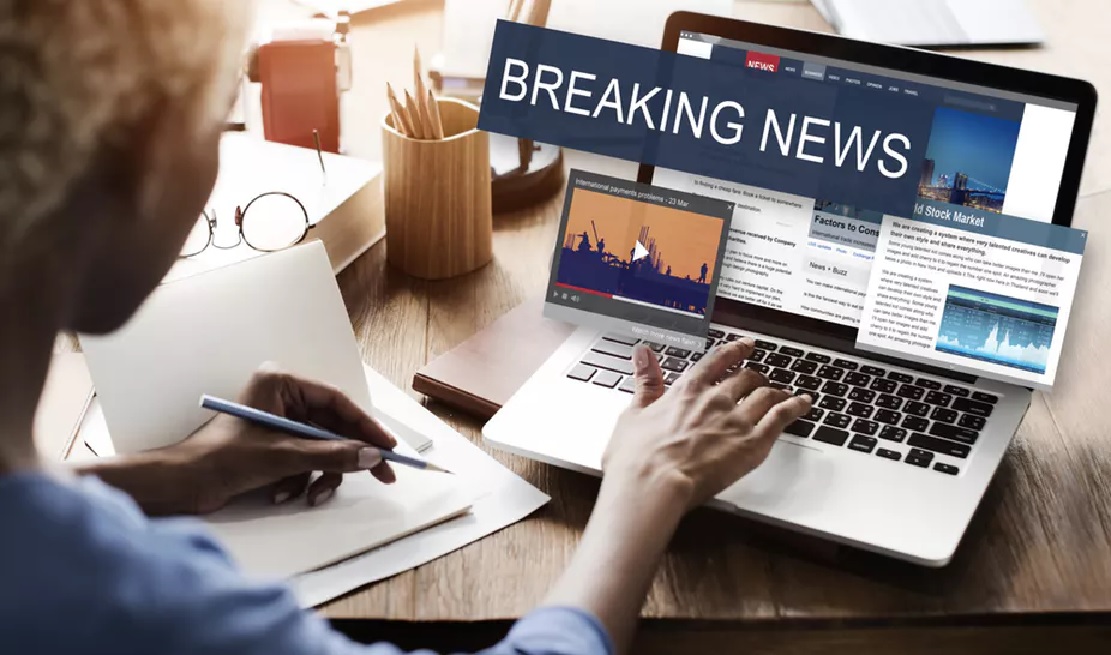
An investigative report is one that reveals new findings, based on the work and research of a reporter. He does some preliminary research before launching an investigation or even pitching it to his editor. push({}); push({}); He must know the laws so he does not break them and knows how to use them to his benefit. Supports his work with documents when possible and thinks about what documents he needs and how he can obtain them. He must not rush into interviews but must get as much information as he can first, so he can ask intelligent questions. When he does get the interview, he is ready to challenge evasive answers.
He must fact-check everything from documents to information obtained through sources. He avoids undercover investigations and ambush interviews unless when necessary. He always allows the subject of his investigation a fair chance to respond. He must not be desperate to write his story in the face of evidence to the contrary. If he finds that his hypothesis is wrong, be prepares to shift gears and change his story. He must keep in touch with his sources on a regular basis and follow-up on stories.
Investigative journalism is capital intensive and can only be perfectly practice in a society with vibrant economy that is private driven. The much-taunted constitutional role of the press as the Forth Estate of the Realms and Press Freedom, tantamount to theory lacking pragmatic praxis without investigative journalism. The press in Nigeria and on the African continent in general still has a long way to go to wear the toga provided it by the Grund Norm that is the constitution. As long as government remains the highest spender through contract awards and business patronage, investigative journalism cannot find strong roots in Nigeria and Africa.
The absence of vibrant and entrenched culture of investigative journalism in the media space in this part of the world is responsible for the impunities by the State and its actors. The executive by its control of the state and its coercive apparatuses subjugates the other two arms to compromises leading to weak social institutions. The State under the control of any status group through a political party that forms a government controls the destinies of the entire citizens. This power to control is a reflection of the groups target goals as economic rational beings in constant interaction to further their interest within the larger society.
In view of the overarching status groups and ethno religious prism through which Nigerian successive governments sees governance, the urgent need for investigative journalism practice becomes very necessary in the media agenda setting. There have been too many conspiracies by different sections of the ruling elites in the process of political power contestations culminating in the breakdown of law and order. Large-scale embezzlement of public funds through unexecuted contracts leading to acute deficit in social infrastructures is recurrent decimal.
Mismanagement of national resources by state actors and their cronies is a known fact to the common person on the street but accepted as a given in Nigeria. High level of crime waves arising from the inability of the state to stimulate the productive sector of the economy has created insecurity beyond containment. Outright diversion and conversion of public funds into private hands and the use of it to secure justice through litigations is a status symbol in Nigeria. The growing discontent by sections of the society excluded through lack of opportunities and enabling social economic environment is manifest in; communal clashes, criminalities, ethnic cum herders farmers violent conflicts, militancy, religious extremism and the call for insurrection and insurgencies.
There are too many of these causal factors of the social anomie situation in Nigeria today that pragmatic investigative journalism can dig deeper to uncover. The fact about such social issues can be researched, investigated by investigative journalists to augment and accentuate the ineffective security agencies shackled by bureaucratic redtapeism. The state is overburden with thick hierarchical responsibilities and often fails to adopt risk management strategies in dealing with social conflicts.
Just like investigative journalists, other professionals in social sciences and management should be allowed to provide their expertise as consultants to various government agencies including the National Assemblies. Government decisions in its ramifications should be based on proven professional inputs and advises. It is often the unintended consequences of events that are harder to deal with especially; violent conflicts, militancy, insurgency, terrorism, crime and social upheaval leading to a revolution.
The state of nation is a culmination of the absence of responsible governance by successive governments, military and civilian democratic government inclusive. The military era shut a very large sections of the citizens out of decision making inputs. That amounts to total exclusion and the option of pent-up grievances constantly seeking outlets. The return to democracy threw up political elites that do not have respect for political party supremacy. The political parties as an institution lack internal democracy, therefore the moral rights to rein in erring undisciplined members. The party that invariably ends up forming a government lacks the legitimacy due to colossal flaws in the electoral processes. Hence, the perambulations since Nigeria’s independence and she is still father from where she started. It is in this miasma of disillusionment that nothing is done as intended or planned, especially government agencies and the social institutions undermined by state actors.
Against the backdrop of this scenario, an anti corruption agency set up to execute its mandates treats state actors with preference until a member falls out of favour and is served with a bitter dose of the law. Since such agencies reserve the power by the Act of Parliament to carry out such mandates, its monopoly is without competition from independent bodies. This overarching power provides the government who appoints the heads of such agencies the latitudes to manipulates and interfere. This is where the Press role as the Watch Dog of the society becomes imperative to dig deep beyond the façade of officialdom.
Until the press galvanizes itself to reclaim the Media industry and begin to train practitioners in the act of investigative journalism, the society will remain at the mercy of different shades of politicians. The political elites freed from either real division above or significant accountability below can afford to enrich themselves without distraction or retribution. If there was an attempt, it had to do with clash of the bourgeoisie divergent group interests. Exposure ceases to matter very much as impunity becomes the rule, like Bankers, leading Politicians do not go to jail in Nigeria as they deploy looted funds to fight back tenaciously. Corruption is not just but a function of the decline in the bourgeois political order but a symptom of the economic regime propped by Capital to sustain the State in power.
The political elites or actors do not see any reason for a paradigm shift in governance, planning, policy formulation and implementation. They do not care about liberation and emancipation of their fellow citizens trapped in the vicious cycle of hardship, poverty that underdevelopment has over time wrecked on the continent. They blindly follow in the footsteps of their colonial predecessors as comprador bourgeois who lack the spirit of inventiveness, entrepreneurship and discovery. They gloriously celebrate oppression, exploitation and abuse of power to the detriment of egalitarianism and social justice for all.
Yet the State and its failing emasculates and weaken social institutions which makes it easy and convenient for politicians, military top brass and other state actors in connivance with capitalist agents to plunder the wealth of the nation with impunity.
One characteristic of capitalist society is that the ruling class is divided among itself. They have common interests like keeping wages down and having the unrestricted right to manage. Different capitalists have divergent interest as debates and disputes between different sections of capital are central and irremovable aspect of capitalist society. The media owners and elected Legislators act along these conflicting differences to pursue their respective sectional interests. They resort to diversionary antics and odium to divert the masses attention from the true state of the nation.
It is against this glaring background that we can situate and deconstruct the fight against corruption by successive governments in Nigeria. The anti corruption agency EFCC should have been supporting journalists by providing training and funding for financial crimes investigations. Such partnership would have given more credibility and integrity in its mandates fighting corruption. As it were, many observers and critics are of the opinions that the anti graft agency is a tool in the hands of any incumbent government to emasculate its perceived enemies (oppositions).
They believed strongly that the grand posture by successive governments in the fight against corruption is a selective punishment that requires a paradigm shift now. It has always been a case of one section of the bourgeois using the coercive instrumentalities of the state to advance its group interests to the disadvantage of those outside the corridors of power. Hence, they advocate for a change in the philosophy and modus operandi of this so-called fight without end. They proffer a middle way by raising the bar of transparency in all social institutions of government.
They conclude by speaking to power on behalf of the teeming army of The Voiceless, powerless and underprivileged Nigerian citizens across the socially constructed divides used by the State and it actors to undermine their cohesion. They are reminding the ruling elites that very soon, the veil of ethno religious sentiments will be removed by the current of a People’s Revolution to liberate and emancipate the people.
Author Profile
-
Comrade Alex Ameh Ogbu is an Abuja based Media Practitioner and a prolific writer that writes mostly from Akatekwe Kingdom.
He is also the National Convenor Generation for Change Africa Initiative GFCAI. He can be reached via: onwaters2011@gmail.com
Latest entries
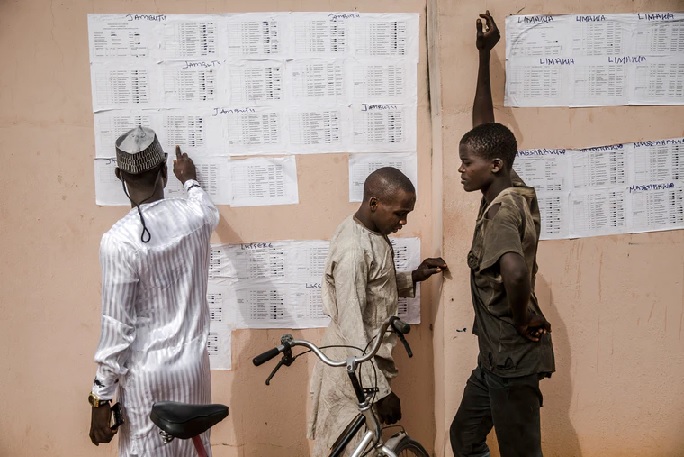 ArticleOctober 2, 2019The Travesty of Democracy through Sham Elections in a Rogue State: A Ride towards Anomie
ArticleOctober 2, 2019The Travesty of Democracy through Sham Elections in a Rogue State: A Ride towards Anomie ArticleAugust 7, 2019The Press Cannot Be The Watchdog Of Society Without Vibrant Investigative Journalism
ArticleAugust 7, 2019The Press Cannot Be The Watchdog Of Society Without Vibrant Investigative Journalism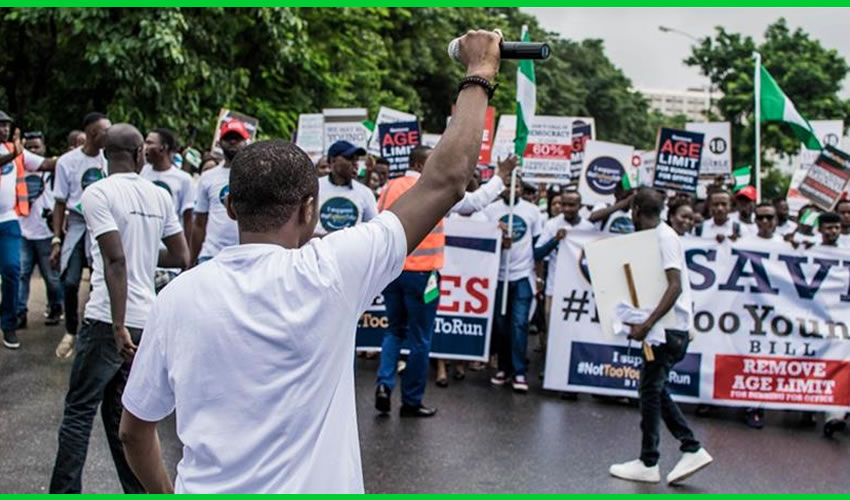 ArticleApril 16, 2019The Nigerian Youths and The Challenges Of Generation Gap; A Call To Action
ArticleApril 16, 2019The Nigerian Youths and The Challenges Of Generation Gap; A Call To Action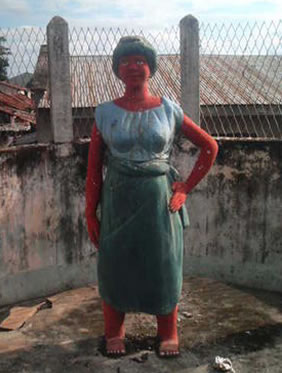 OpinionApril 16, 2019The Making of Heroes, Saints and Martyres; The Point of Departure in Deconstructing the Inikpi Legend of Igala Land
OpinionApril 16, 2019The Making of Heroes, Saints and Martyres; The Point of Departure in Deconstructing the Inikpi Legend of Igala Land
Article
Latest Report Reveals Oppo Smartphone Democratising Access To Professional-Grade Photography

By Abdulrahman Obaje
Improvements related to camera have been a major factor driving smartphone evolution over the past decade and the telephoto lens technology is among the important factors that determines how far the camera system can go, hence an indication of a larger trend in consumer behaviour, showing a preference for smartphones with enhanced photographic capabilities. adsbygoogle || []).push({}); adsbygoogle || []).push({}); January 2024 report of a market research firm, Counterpoint Research shows that the penetration rate has increased over the years to more than 19 per cent in H1 2023, nearly 3 per cent higher than it was in H1 2022.
So, what separates you from becoming a professional photographer this days is insignificant compare to the old ways of photography. It is just a thin line with the advent and rise in popularity of telephoto lenses in smartphones. This is because the growing trend in consumers’ desire for telephoto photography, something that can only be found exclusively in professional cameras; telephoto lenses integration in smartphones is now the main stay in the industry, a trend that industry player said is just the beginning of a larger trend.
Reports by Counterpoint had shed more light on the evolving landscape of smartphone photography. According to Counterpoint Research’s most recent report, more than 200 million telephoto lens-equipped smartphones were sold globally in 2022, with that figure expected to rise even further by 2024.
The telephoto lens feature was initially available exclusively on exceptional smartphones. However, the study has also found that mass-market adoption of telephoto lens is increasing, particularly among sub-$400 segments. The increasing popularity of telephoto lenses in affordable smartphones mirrors consumers’ inclination for advanced features without the accompanying high cost. In acknowledgment of this demand, smartphone manufacturers have promptly responded by enhancing their mid-tier line-ups with telephoto capabilities, enabling a broader audience to partake in upgraded photography experiences that were traditionally exclusive to high-end models.
Users can capture images that stand out for their precision and elegance. Apart from its ability to be able to capture a distant landscape, telephoto lens also stands out in shooting portrait as it can compress the subject and background, creating dramatic bokeh effect. The 50mm or 85mm equivalent focal length provides a field of view similar to human eyes with minimal distortions.
The report also revealed that these lenses are becoming increasingly integrated into smartphones around the globe. The ability to zoom without sacrificing image quality, combined with the unique visual effects a telephoto lens can produce, has made it a popular choice among smartphone users. The proportion of smartphones equipped with a telephoto camera has increased both internationally and in China, reaching 19.3% and 24.4%, respectively, demonstrating the importance of telephoto lenses in today’s mobile photography environment.
The report further revealed that the newly launched OPPO’s Reno11 series, positioned as “The Portrait Expert”, has been instrumental in bringing high-end telephoto lens features to more affordable smartphone models with the innovative “Telephoto Portrait” feature saying that OPPO has been instrumental in making high-quality mobile photography accessible to a greater majority of the masses.
“This strategic move by OPPO has not only democratized access to professional-grade photography features but also underscored the brand’s position as a leader in mobile photography innovation. ”, it said
The Reno11 series boasts features such as a 32MP 2x optical zoom camera powered by Sony IMX709 flagship sensor, enabling users to capture sharp, detailed images from a distance. The series also integrates advanced AI algorithms to enhance image quality, especially in portrait photography, providing users with the tools to capture life’s moments with unparalleled clarity and creativity.
The report thereby anticipates a positive outlook for telephoto lenses, affirming their pivotal contribution to the progression of mobile photography.
The integration of telephoto lenses is just the beginning of a larger trend. The future of mobile photography is expected to see upward progression, with telephoto lenses playing a significant role in how consumers capture and engage with the world around them. This trend is poised to redefine the standards of mobile photography, pushing the boundaries of what smartphones can achieve.
Abdulrahman Obaje is a Journalist, Mathematician and Computer Scientist based in Abuja, Nigeria.
Author Profile
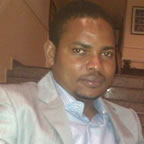
- Prince Abdulrahman Obaje is a Media, Information and Computer Technology Consultant. A quintessential Journalist, online marketer, social media strategist, Mathematician and Computer Scientist is based in Abuja, Nigeria. He is the Founder and the Publisher of The Informavores!. You can reach me on +234 805 939 5252 or send i-witness report directly to me on news@informavores.com.ng.
Latest entries
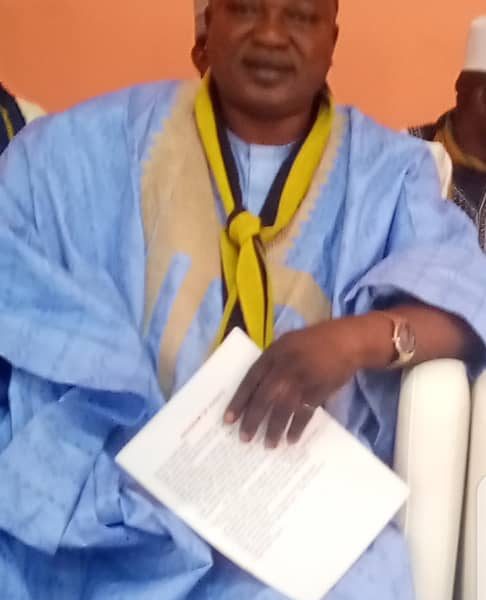 NewsApril 11, 2024Eid-El-Fitr: ICDA North Central Coordinator Urges Muslim Faithfuls To Abide By Ramadan Lessons
NewsApril 11, 2024Eid-El-Fitr: ICDA North Central Coordinator Urges Muslim Faithfuls To Abide By Ramadan Lessons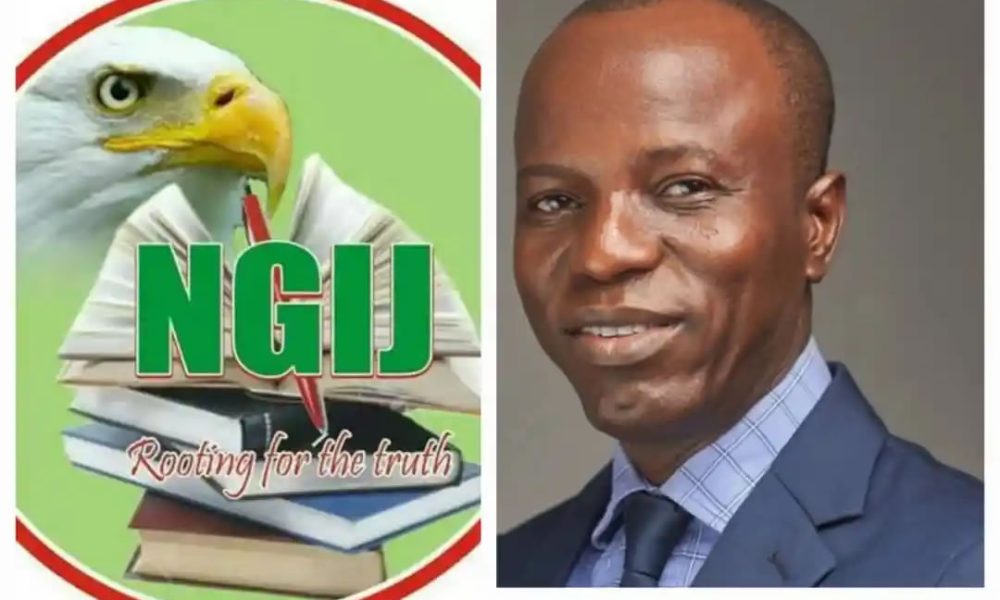 NewsMarch 20, 2024Investigative Journalists Group, NGIJ Hails Aderinokun on Appointment as Head of Media at Access Corp
NewsMarch 20, 2024Investigative Journalists Group, NGIJ Hails Aderinokun on Appointment as Head of Media at Access Corp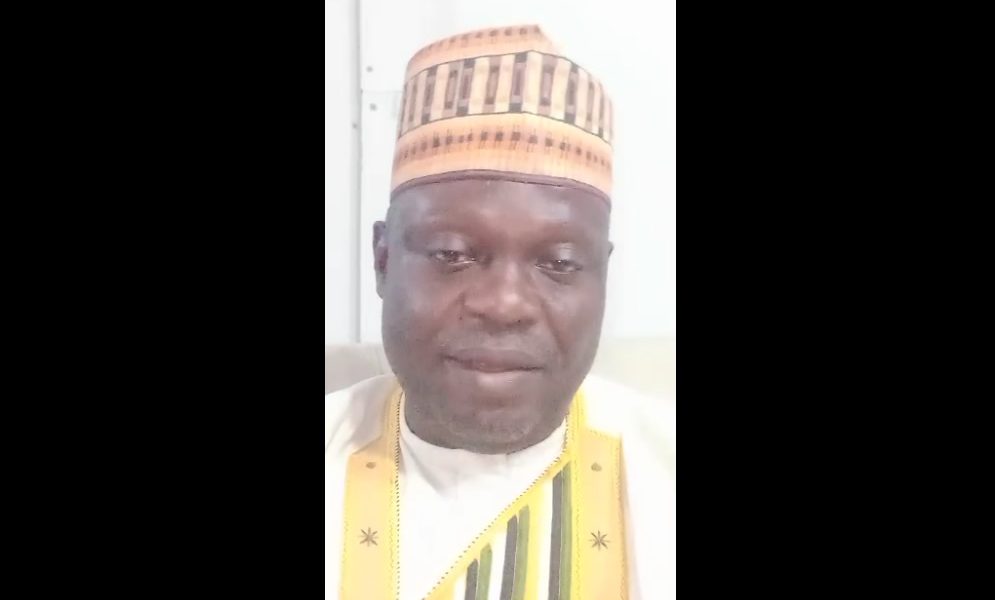 NewsMarch 4, 2024ICDA Chairman, Abubakar Sadiq Debunks Rumours of Unpopular Movement, Calls for Prayers
NewsMarch 4, 2024ICDA Chairman, Abubakar Sadiq Debunks Rumours of Unpopular Movement, Calls for Prayers NewsFebruary 23, 2024NGIJ’s Call to President Tinubu: Address Economic and Security Concerns Before Nigerians Take to the Streets
NewsFebruary 23, 2024NGIJ’s Call to President Tinubu: Address Economic and Security Concerns Before Nigerians Take to the Streets
Article
Why We Must Not Lose Guard About The Potential Risks Of AI – Part 1

By Abdulrahman Obaje
The most globally talked about scientific discipline at present is AI, short form of Artificial Intelligence, garnering attentions from main stream media organisations such as CNN, BBC, Forbes, New York Times, Daily Trust newspaper and the kinds of them. adsbygoogle || []).push({}); adsbygoogle || []).push({}); Unfortunately this technology also poses the most threats to society and humanity at present.
AI is a scenario whereby a piece of an electronic device or software behaves as though it is digital human assistant. Some can make and take decisions that ordinarily may take time for human being to accomplish. AI-based device may be trained to even perform responsibilities that usually requires human intelligence to accomplish. Such tasks include solving complex mathematical problem, complex medical diagnosis, language translation, etc.
Example include Language translators, Facial recognition capabilities on mobile phones and other devices, Facebook’s language translation feature, Google Assistant on Android, Siri on iPhones, friend suggestions on Facebook to mention but few. An AI-based system can actually act like a smart helpful digital friend.
AI serves as the foundation for transformative technologies like the much talked about ChatGPT with more than 18 million active users daily. Now, the GPTs store has been launched for business. Also, AI non-invasive device to read what a human is thinking in his mind, convert it to text and display the text on a screen. The research that has been conducted and pilot tested in the University of Sydney has a multifaceted benefit to the human. Anyone with speech impairment can use the device to communicate his or her thoughts and wants with people without talking.
As modern Artificial Intelligent-based systems are now being trained to learn from past experience; in the form of gathered information, making it able to adjust to new information that enable it to be independent in some areas to some extents, the voice of warning against the potential risks of AI is growing louder.
The tech community has long debated the threats posed by artificial intelligence. Automation of jobs, the spread of fake news and a dangerous arms race of AI-powered weaponry have been mentioned as some of the biggest threats posed by AI.
There is also growing concerns that these things could get more intelligent than the humans and that they could one day decide to take over, and that there is why we need to worry about how we prevent that from happening.
A Computer Scientist, Geofrey Hinton also dubbed as the Godfather of Artificial Intelligence, a name he got from his foundational work on machine learning and neural network algorithm, in 2023 left his position at Google to talk about the risk of Artificial Intelligence, insinuating that a part of him even regrets his life’s work.
Hinton is not alone in this concerns. More than 20,000 tech leaders had in March 2023 persuaded in an open letter to put a pause on large AI experiments, citing that the technology can pose profound risk to society and humanity.
According to Wikipaedia, Pause Giant AI Experiments: An Open Letter is the title of a letter published by the Future of Life Institute in March 2023. The letter calls “all AI labs to immediately pause for at least 6 months the training of AI systems more powerful than GPT-4”, citing risks such as AI-generated propaganda, extreme automation of jobs, human obsolescence, and a society-wide loss of control. It received more than 20,000 signatures, including academic AI researchers and industry CEOs such as Yoshua Bengio, Stuart Russell, Elon Musk, Steve Wozniak and Yuval Noah Harari.
One of the risks posed by AI system is the lack of AI transparency and explainability. This is as AI and deep learning models can be difficult to understand, even for those that are working directly with the technology. This leads to a lack of transparency for why and how Artificial Intelligence comes to its conclusions. This conclusion cannot be trusted one hundred percent of times because of lack of explanation for what data AI algorithms use, or why AI may make biased or unsafe decisions. These concerns explain the rise to the use of explainable AI, but there’s still a long way before transparent AI systems can become common practice.
The second area of concern is job loss due to job automation. As AI-powered job automation is adopted in industries like marketing, manufacturing and healthcare. By 2030, tasks that account for up to 30 percent of hours currently being worked in the U.S. economy could be automated. According to McKinsey. Black and Hispanic employees especially is more vulnerable to the change while Goldman Sachs even states 300 million full-time jobs could be lost to AI automation.
“The reason we have a low unemployment rate, which doesn’t actually capture people that aren’t looking for work, is largely that lower-wage service sector jobs have been pretty robustly created by this economy,” futurist Martin Ford told Built In. With AI on the rise, though, “I don’t think that’s going to continue.”
As AI robots become smarter and more dexterous, the same tasks will require fewer humans. And while AI is estimated to create 97 million new jobs by 2025, many employees won’t have the skills needed for these technical roles and could get left behind if companies don’t upskill their workforces.
The third area of risks poses by AI is Social manipulation. This fear has become a reality as politicians rely on platforms to promote their viewpoints. For example Ferdinand Marcos, Jr., wielded a TikTok troll army to capture the votes of younger Filipinos during the Philippines’ 2022 election.
TikTok, which is one example of a social media platform that relies on AI algorithms, fills a user’s feed with content related to previous media they’ve viewed on the platform. Criticism of the app targets this process and the algorithm’s failure to filter out harmful and inaccurate content, raising concerns over TikTok’s ability to protect its users from misleading information.
Online media and news have become even murkier in the wake of AI-generated content such as images and videos, AI voice changers as well as deepfakes infiltrating political and social spheres. These technologies make it easy to create realistic photos, videos, audio clips or replace the image of one figure with another in an existing picture or video. As a result, bad actors have another avenue for sharing misinformation and war propaganda, creating a nightmare scenario where it can be nearly impossible to distinguish between creditable and faulty news.
“No one knows what’s real and what’s not,” Ford said. “So it really leads to a situation where you literally cannot believe your own eyes and ears; you can’t rely on what, historically, we’ve considered to be the best possible evidence… That’s going to be a huge issue.”
Abdulrahman Obaje is a Journalist, Mathematician and Computer Scientist based in Abuja, Nigeria.
Author Profile

- Prince Abdulrahman Obaje is a Media, Information and Computer Technology Consultant. A quintessential Journalist, online marketer, social media strategist, Mathematician and Computer Scientist is based in Abuja, Nigeria. He is the Founder and the Publisher of The Informavores!. You can reach me on +234 805 939 5252 or send i-witness report directly to me on news@informavores.com.ng.
Latest entries
 NewsApril 11, 2024Eid-El-Fitr: ICDA North Central Coordinator Urges Muslim Faithfuls To Abide By Ramadan Lessons
NewsApril 11, 2024Eid-El-Fitr: ICDA North Central Coordinator Urges Muslim Faithfuls To Abide By Ramadan Lessons NewsMarch 20, 2024Investigative Journalists Group, NGIJ Hails Aderinokun on Appointment as Head of Media at Access Corp
NewsMarch 20, 2024Investigative Journalists Group, NGIJ Hails Aderinokun on Appointment as Head of Media at Access Corp NewsMarch 4, 2024ICDA Chairman, Abubakar Sadiq Debunks Rumours of Unpopular Movement, Calls for Prayers
NewsMarch 4, 2024ICDA Chairman, Abubakar Sadiq Debunks Rumours of Unpopular Movement, Calls for Prayers NewsFebruary 23, 2024NGIJ’s Call to President Tinubu: Address Economic and Security Concerns Before Nigerians Take to the Streets
NewsFebruary 23, 2024NGIJ’s Call to President Tinubu: Address Economic and Security Concerns Before Nigerians Take to the Streets
Article
Kwara’s Growing National Profile
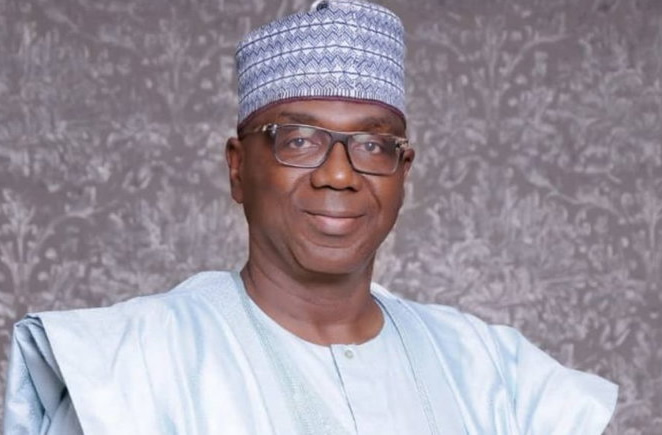
By Abdulrazaq Hamzat
Before transition into a people’s government, through the otoge political revolution in 2019, the only thing most people outside the state of harmony knows about the state is its political godfatherism. adsbygoogle || []). push({});
Fortunately for Kwara, things are changing and the state’s national profile is taking a new look.
In this past months, I have been traveling around the country, from Kogi, to Lagos, to Abuja.
As you all know, we have been accostom to the popular saying that the world is a global village, but nothing reinforces such claim and brought it close to home like the experiences I had traveling around the country lately.
It all started in Lagos, while in midsts of Nigerians from different parts of the country. A conversation about the current state of affairs in the nation began and soon after, the conversation was narrowed down to the issue of lawmakers in the country.
To my greatest surprise, one of the individuals in the gathering made reference to the Legislative Watch Assessment Report, produced by Grand Plan in partnership with Kwara Must Change, which was piloted here in Kwara State.
When I first heard reference being made to this report, it was kind of surprising because the person making this reference is from Kano and I was surprised that a project done in Kwara State could have such impression on somebody from far away Kano. So, while asking questions to probe what this individual really know about Legislative Watch, the other individual who came from Nasarawa State jumped in and also spoke glowingly about Legislative Watch and the impact it made in their state.
According to him, the project was trending in Nasarawa for weeks.
When I said it’s just a Kwara report, both individuals strongly disagreed. That project is beyond Kwara, it is a report like no other and it’s impact was felt all across the federation. They concluded.
While these conversation were taking place, they never knew I had anything to do with the report. So, it was a shocking moment for them, when I said that we did the project and that I was the lead researcher. They went berserk in excitement, looking at me strangely and affectionately and I began to feel excitedly scared for myself.
It was at this point that I thought of bringing up conversation about the national perspective of Nigerians about Kwara State and the current administration in the state.
Even when you know the truth, sometimes, it is always good to aggregate opinion of independent third parties that are not connected to the players or affected by their prejudice.
Fortunately, all of the people in this gathering have nothing but praise for the Abdulrahman Abdulrazaq led administration in Kwara State. Some of them even compared his activities to that of their own state and concluded that Kwara State is at the forefront in governance.
This encounter spurred my interest in wanting to have a real feedback about national perspective of Nigerians on Kwara State.
So, I decided to make a delibrate random survey anywhere I go about Kwara State.
In Lagos State, I asked 15 people about their perspective of the Abdulrahman Abdulrazaq led administration in Kwara State.
While 3 of them do not have any real opinion because of limited information, 10 of them spoke about the state in glowing terms. The remaining 2 were critical of the state due to the ongoing dispute between the ruling party.
Although, out of the two individuals critical of Kwara State because of the ongoing dispute between Governor Abdulrahman Abdulrazaq and Minister of Information, Alhaji Lai Muhammed, one praised the governor for taming the minister, noting that he belongs to the same constituency with the minister in Lagos and they have also been looking for ways to deal with him.
In Kogi State, it was positive feedback all through for Kwara State, amongst the 5 individuals sampled.
Furthermore, at the federal capital territory in Abuja, Kwara State is seen as one of the top 3 performing state in the country.
Amongst the 20 individuals sampled, only 3 were critical of the government in relation to it’s ongoing dispute with information minister and the opposition leader, Dr. Bukola Saraki.
While 17 individuals spoke positively about the government and its performance, 3 individuals think the situation with the opposition leader, Dr Bukola Saraki could have been handled with more diplomacy. They also think the dispute with Alhaji Lai Muhammed was unnecessary. However, when they were provided with context to both issues, they seems to understand it better.
In all, Kwara State is now a state of interest for many across the federation and whatever happens here makes alot of impact in other states.
The administration of Mallam Abdulrahman Abdulrazaq is also seen as a leading light in terms of governance and we must encourage the government to continue to improve on its chosen path until the state get to its promise land.
While it is always good to criticise government projects and policies, such criticism should seek to add value to governance, not diminish it. Valid criticism doesn’t hurt anyone, it strengthen us all and make good governance a reality, not a dream.
Abdulrazaq Hamzat writes from Abuja, Nigeri
Author Profile
Latest entries
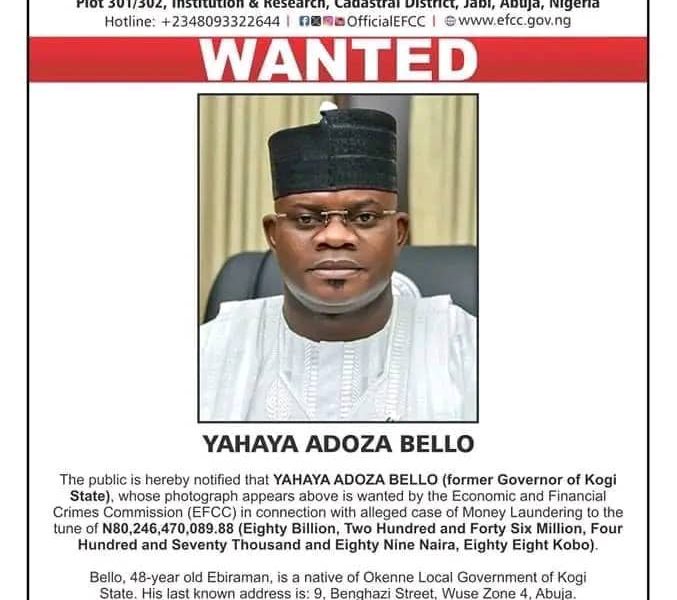 NewsApril 18, 2024Alleged N80.2billion Money Laundering: EFCC Declares Immediate Kogi Ex-Governor Yahaya Bello Wanted
NewsApril 18, 2024Alleged N80.2billion Money Laundering: EFCC Declares Immediate Kogi Ex-Governor Yahaya Bello Wanted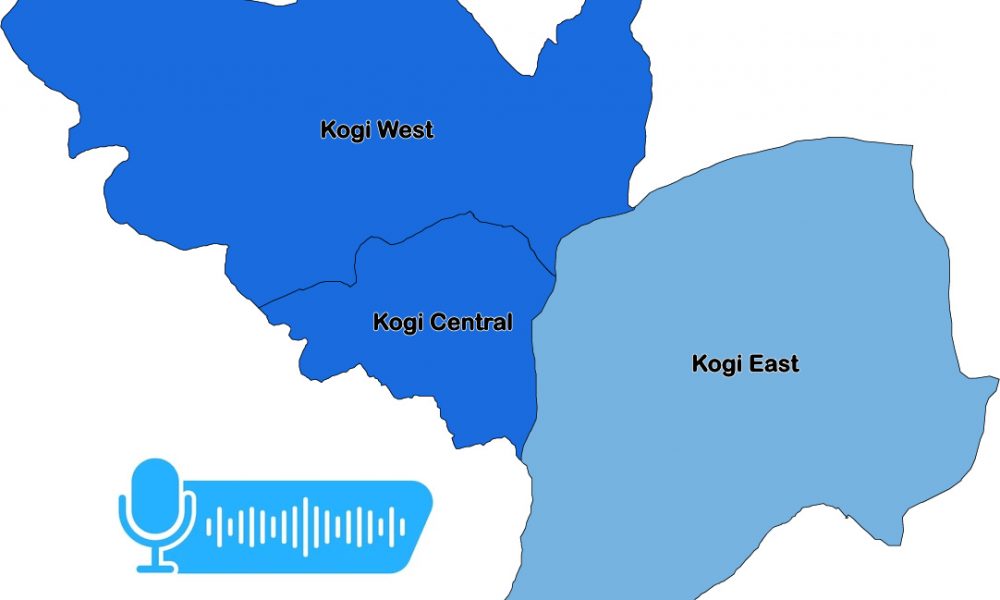 NewsNovember 6, 2023Another Massive Plan By APC To Rig Kogi Election Uncovered!
NewsNovember 6, 2023Another Massive Plan By APC To Rig Kogi Election Uncovered!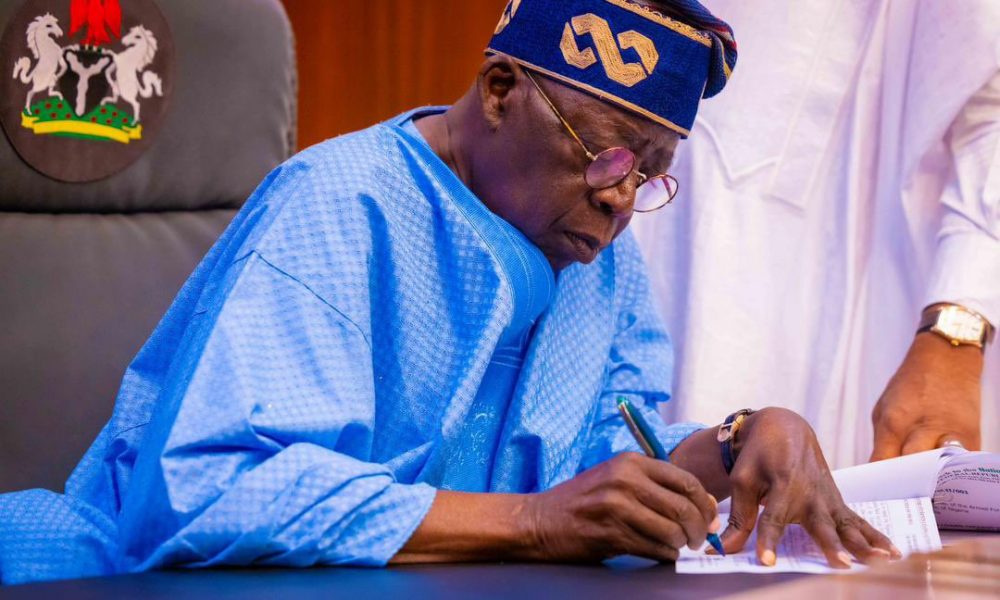 Food and AgricultureAugust 1, 2023Food Security: FG Started The Distribution of Subsidised Farm Inputs to Small Holder Farmers
Food and AgricultureAugust 1, 2023Food Security: FG Started The Distribution of Subsidised Farm Inputs to Small Holder Farmers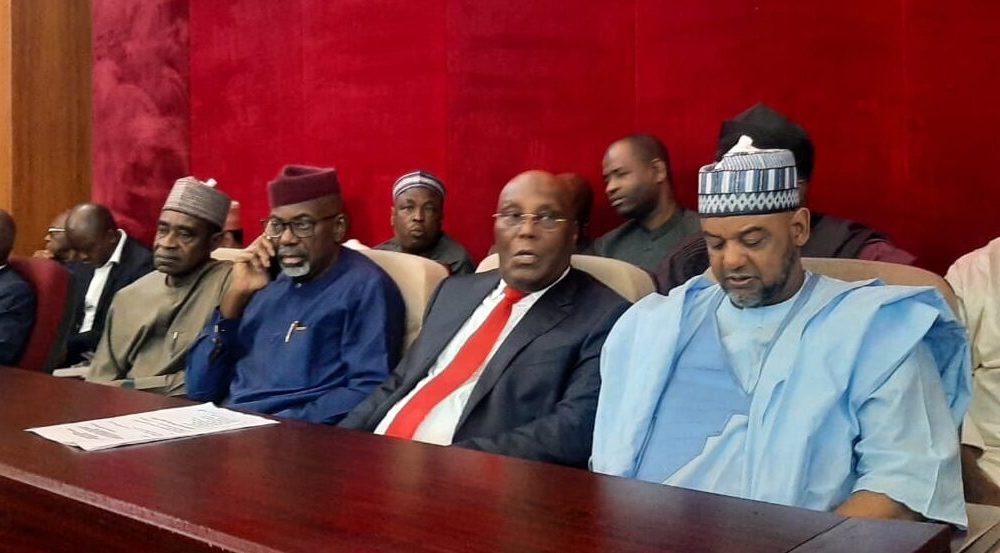 PoliticsAugust 1, 2023PEPC: PDP Atiku Appears As Parties Set To Adopt Written Addresses
PoliticsAugust 1, 2023PEPC: PDP Atiku Appears As Parties Set To Adopt Written Addresses

